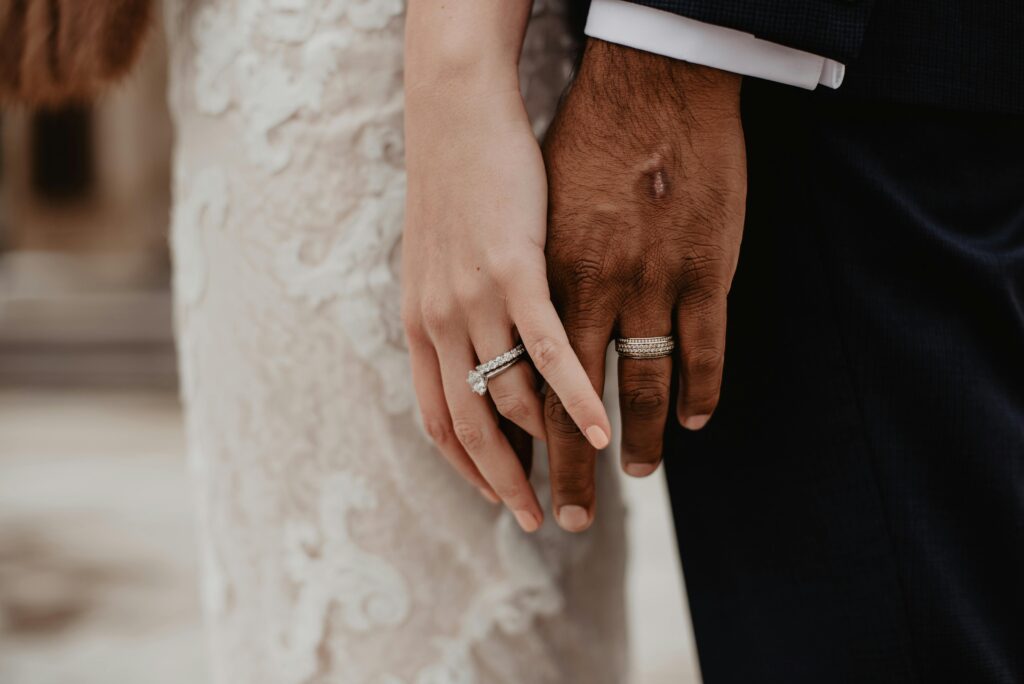We know of no biblical or moral considerations that would prohibit interracial marriage, and we disagree with those who attempt to use the Bible to condemn it. Every person, regardless of their race and culture, is of equal worth in God’s eyes. Whenever a man and a woman pledge themselves to one another for life and do so with the intent to honor God in their marriage, it should be a cause for celebration. Period.
That’s not to say that interracial marriage might not present some unique challenges for a couple. The cultural elements are actually more significant and may have a far greater impact than any racial factors. There are, of course, two sides to this issue. When two cultural backgrounds come together, the result can be a deeper and richer relationship. But potential obstacles need to be clearly identified and frankly addressed before moving ahead.
In the first place, it’s important to acknowledge and understand how contrasting customs and cultural backgrounds are likely to impact your marriage and family life. The way you’re brought up is the way you’ll live unless you make a conscious choice to embrace another option. Different customs and cultures teach different values and priorities. Normally, this means that interracial or multicultural couples have a unique need to bend, flex, compromise, and accommodate to one another’s contrasting ways of looking at life. This is especially true if a husband and wife grew up in different parts of the world.
Nationalistic, ethnic, or social pride can also drive a wedge between otherwise loving spouses. One partner may (subconsciously) feel superior because he or she grew up in a “higher” socio-economic class than the other. Or a spouse may feel owed something for having legalized the other’s citizenship through matrimony. Pride also raises its head when one spouse believes that the other’s culture or beliefs are inferior or strange, thereby discounting the other person’s importance in the relationship.
Communication can be one of the biggest difficulties facing interracial or intercultural couples. This can include the challenge of literally speaking different languages. At first, couples tend to enjoy hearing another language spoken, but this can also become a point of contention when misunderstandings occur or when the “foreign” language is spoken at family gatherings. Communication also becomes an issue when it affects the way a couple solves problems. Different cultural attitudes towards the respective roles of men and women in the home can play havoc with this area of the relationship unless husbands and wives can find ways to turn conflicts into opportunities for learning and growth.
Another potential challenge to racially or culturally mixed marriages is that of isolation. During the dating and engagement phases of the relationship it’s relatively easy to believe that “love conquers all” and that a couple’s mutual commitment to one another is all that matters. But after the wedding, broken family ties and friendships can haunt couples for the rest of their lives. This aspect of the situation needs to be weighed very carefully.
How can you handle racial and cultural differences in your marriage? Here are five practical recommendations:
- Educate yourself and your family about the other culture. This can ease surprises and defuse potential conflicts. Ask questions of your partner. Research norms and expectations.
- Challenge false beliefs you or your family may have about the other culture. When two people marry, they generally “marry” each other’s families as well. That’s why it’s a good idea to discuss as a couple the belief system each person has and to explore the evidence supporting those beliefs.
- Discuss the positives and negatives of the two cultures and choose together which parts will best fit in your relationship. Talk with your mate about the possible weaknesses and strengths of your own culture. Decide which aspects of both cultures might enhance the household you’re building.
- Adjust and adapt to one another’s cultures through compromise and communication. This takes humility and courage. It also takes a willingness to give up some of your desires in order to meet the other person’s needs. Listen to each other before identifying differences, problems, and solutions. Realize that both of you have equal influence in your relationship.
- Be patient as your partner adapts. If you continually correct your spouse, they may lose interest in adjusting to your culture. People tend to gravitate toward familiarity and success; provide both as your spouse explores a revised and expanded way of living and perceiving.
If you need help putting these concepts into practice, don’t hesitate to give us a call. Our counselors would be more than happy to discuss your situation with you over the phone. They can also provide you with referrals to qualified marriage and family therapists in your area who specialize in communication issues.
Articles
Marriage in the Melting Pot












